timekeeping.h File Reference
#include <stdint.h>#include <stdlib.h>
Include dependency graph for timekeeping.h:
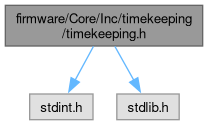
This graph shows which files directly or indirectly include this file:

Go to the source code of this file.
Macros | |
| #define | TIME_EPOCH_DECIMAL_STRING_LEN 13 |
Functions | |
| uint32_t | TIME_get_current_system_uptime_ms (void) |
| void | TIME_set_current_unix_epoch_time_ms (uint64_t current_unix_epoch_time_ms, TIME_sync_source_enum_t source) |
| Use this function in a telecommand, or upon receiving a time update from the GNSS. | |
| uint64_t | TIME_get_current_unix_epoch_time_ms () |
| Returns the current unix timestamp, in milliseconds. | |
| uint64_t | TIME_convert_uptime_to_unix_epoch_time_ms (uint32_t uptime_ms) |
| Convert the system uptime to a unix epoch time in ms. | |
| void | TIME_format_timestamp_str (char dest_str[], size_t dest_str_size, uint32_t uptime_ms, TIME_sync_source_enum_t sync_source) |
| void | TIME_get_current_timestamp_str (char *dest_str, size_t dest_str_size) |
| Returns a computer-friendly timestamp string. | |
| void | TIME_format_utc_datetime_str (char *dest_str, size_t dest_str_size, uint64_t timestamp_ms, TIME_sync_source_enum_t sync_source) |
| void | TIME_get_current_utc_datetime_str (char *dest_str, size_t dest_str_size) |
| char | TIME_sync_source_enum_to_letter_char (TIME_sync_source_enum_t source) |
Variables | |
| uint64_t | TIME_unix_epoch_time_at_last_time_resync_ms |
| uint32_t | TIME_system_uptime_at_last_time_resync_ms |
| TIME_sync_source_enum_t | TIME_last_synchronization_source |
Macro Definition Documentation
◆ TIME_EPOCH_DECIMAL_STRING_LEN
| #define TIME_EPOCH_DECIMAL_STRING_LEN 13 |
Enumeration Type Documentation
◆ TIME_sync_source_enum_t
Function Documentation
◆ TIME_convert_uptime_to_unix_epoch_time_ms()
| uint64_t TIME_convert_uptime_to_unix_epoch_time_ms | ( | uint32_t | uptime_ms | ) |
Convert the system uptime to a unix epoch time in ms.
- Parameters
-
uptime_ms System uptime in ms, as returned by HAL_GetTick().
- Returns
- The unix epoch time in ms (ms since 1970-01-01).
- Note
- This function still works fine even if you store the uptime, resync the system time, and then call this function.
Here is the caller graph for this function:
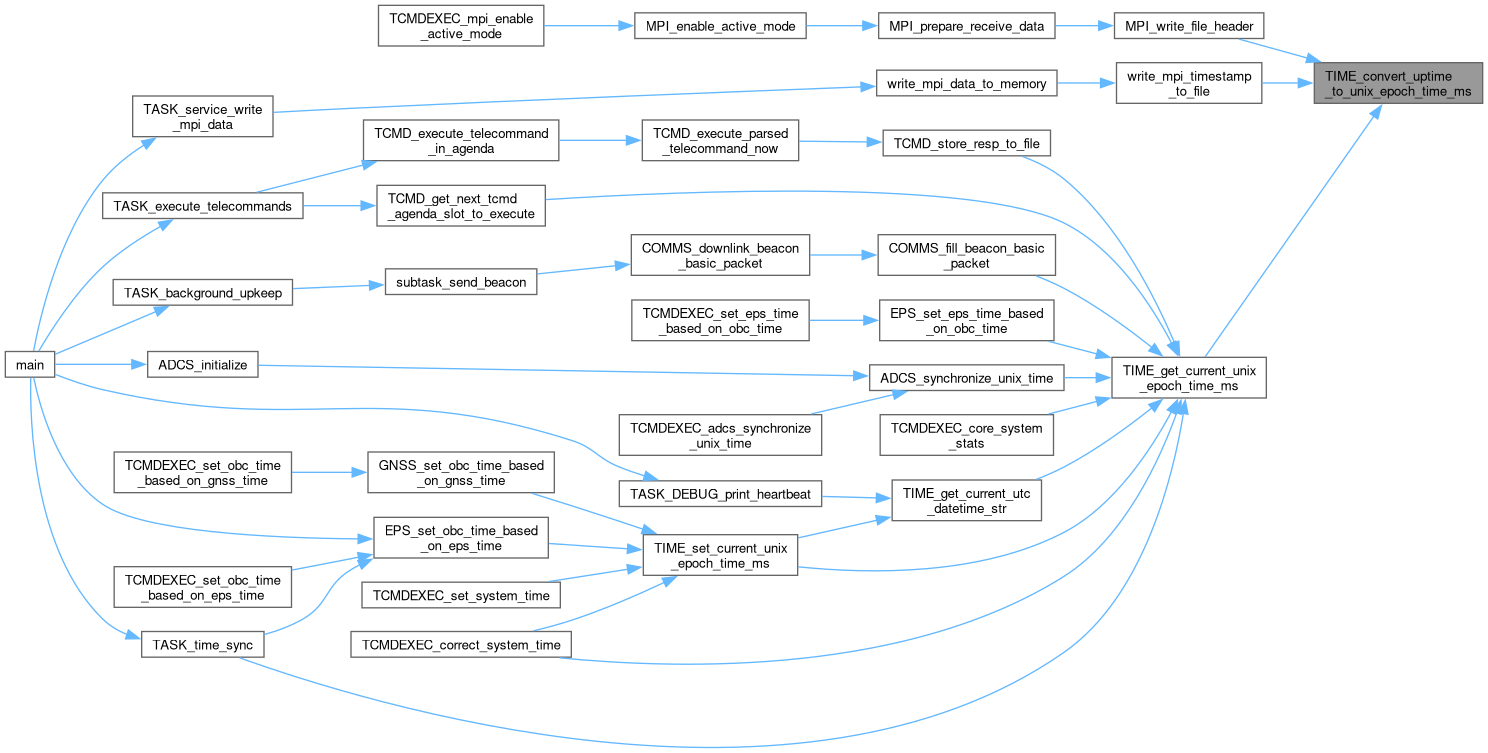
◆ TIME_format_timestamp_str()
| void TIME_format_timestamp_str | ( | char | dest_str[], |
| size_t | dest_str_size, | ||
| uint32_t | uptime_ms, | ||
| TIME_sync_source_enum_t | sync_source ) |
Here is the call graph for this function:

Here is the caller graph for this function:
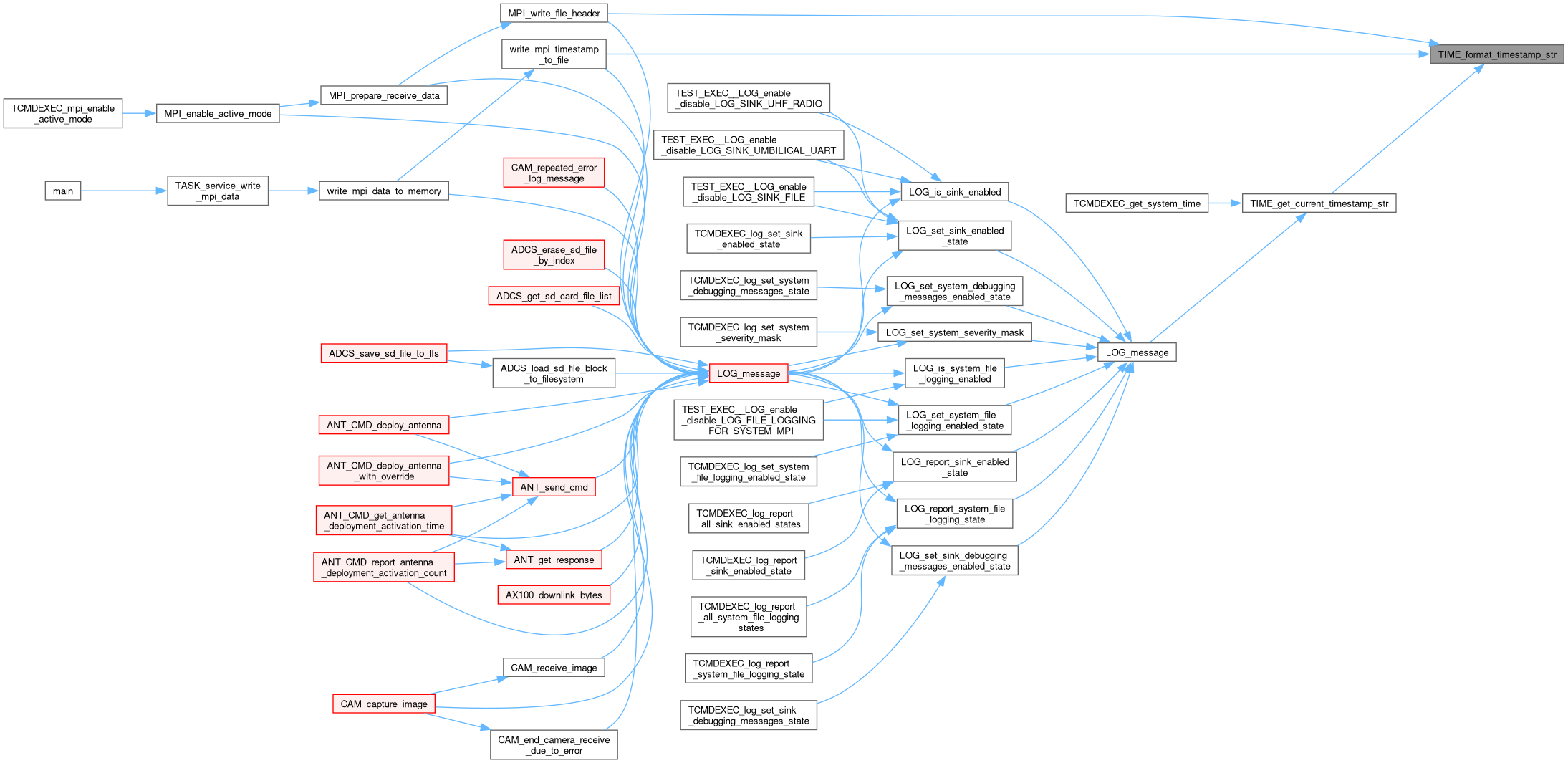
◆ TIME_format_utc_datetime_str()
| void TIME_format_utc_datetime_str | ( | char * | dest_str, |
| size_t | dest_str_size, | ||
| uint64_t | timestamp_ms, | ||
| TIME_sync_source_enum_t | sync_source ) |
Here is the call graph for this function:

Here is the caller graph for this function:

◆ TIME_get_current_system_uptime_ms()
| uint32_t TIME_get_current_system_uptime_ms | ( | void | ) |
Here is the caller graph for this function:
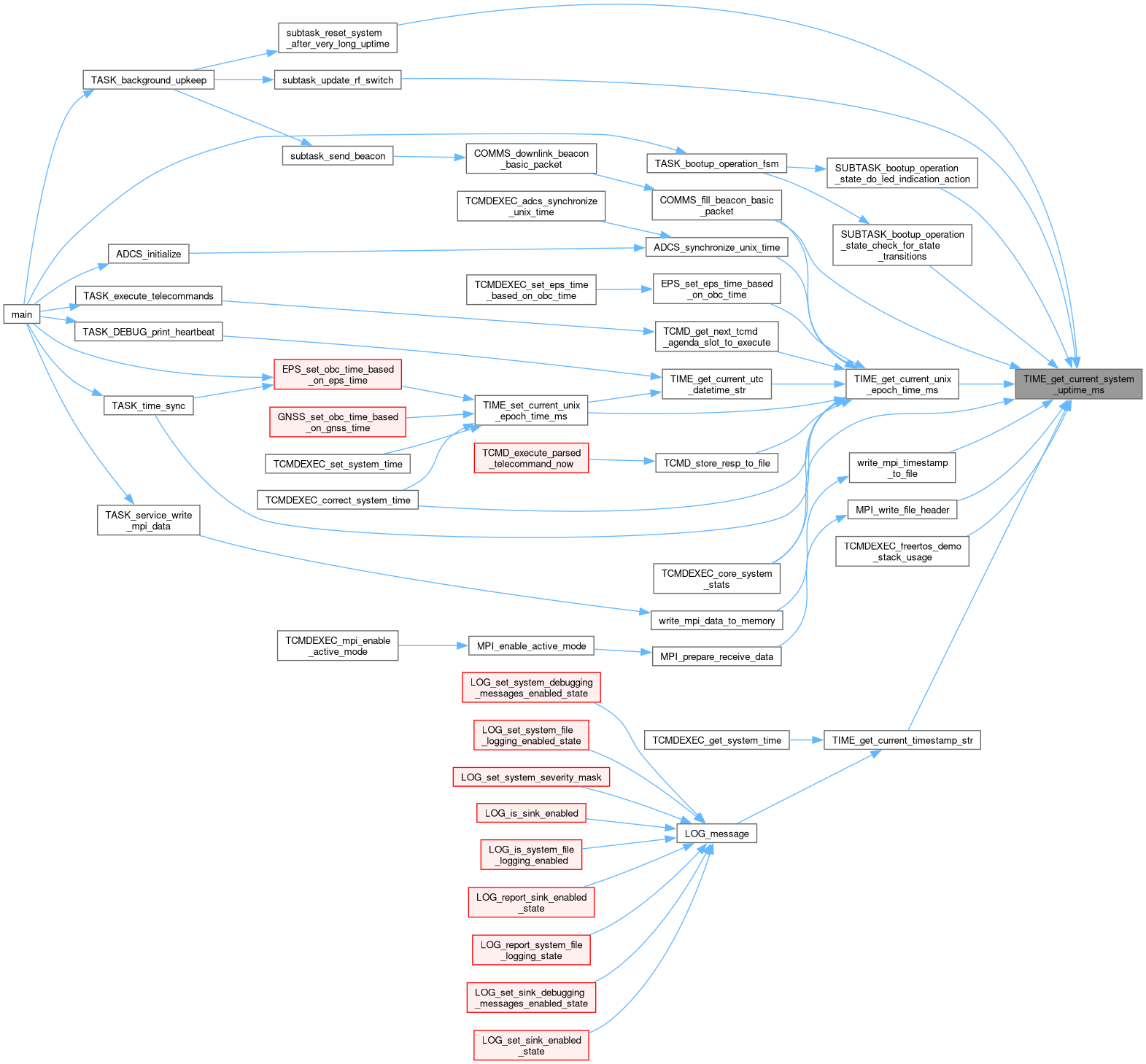
◆ TIME_get_current_timestamp_str()
| void TIME_get_current_timestamp_str | ( | char * | dest_str, |
| size_t | dest_str_size ) |
Returns a computer-friendly timestamp string.
- Parameters
-
dest_str - Pointer to buffer that stores the log string dest_str_size - Maximum length of dest_str buffer
The string identifies the timestamp of the last time synchronization, the synchronization source (N - none; G - GNSS/GPS; T - telecommand), and the time passed in ms since the last synchronization. Added together, the two numbers represent the current unix timestamp in ms. Example: "1719169299720+0000042000_N"
Here is the call graph for this function:

Here is the caller graph for this function:
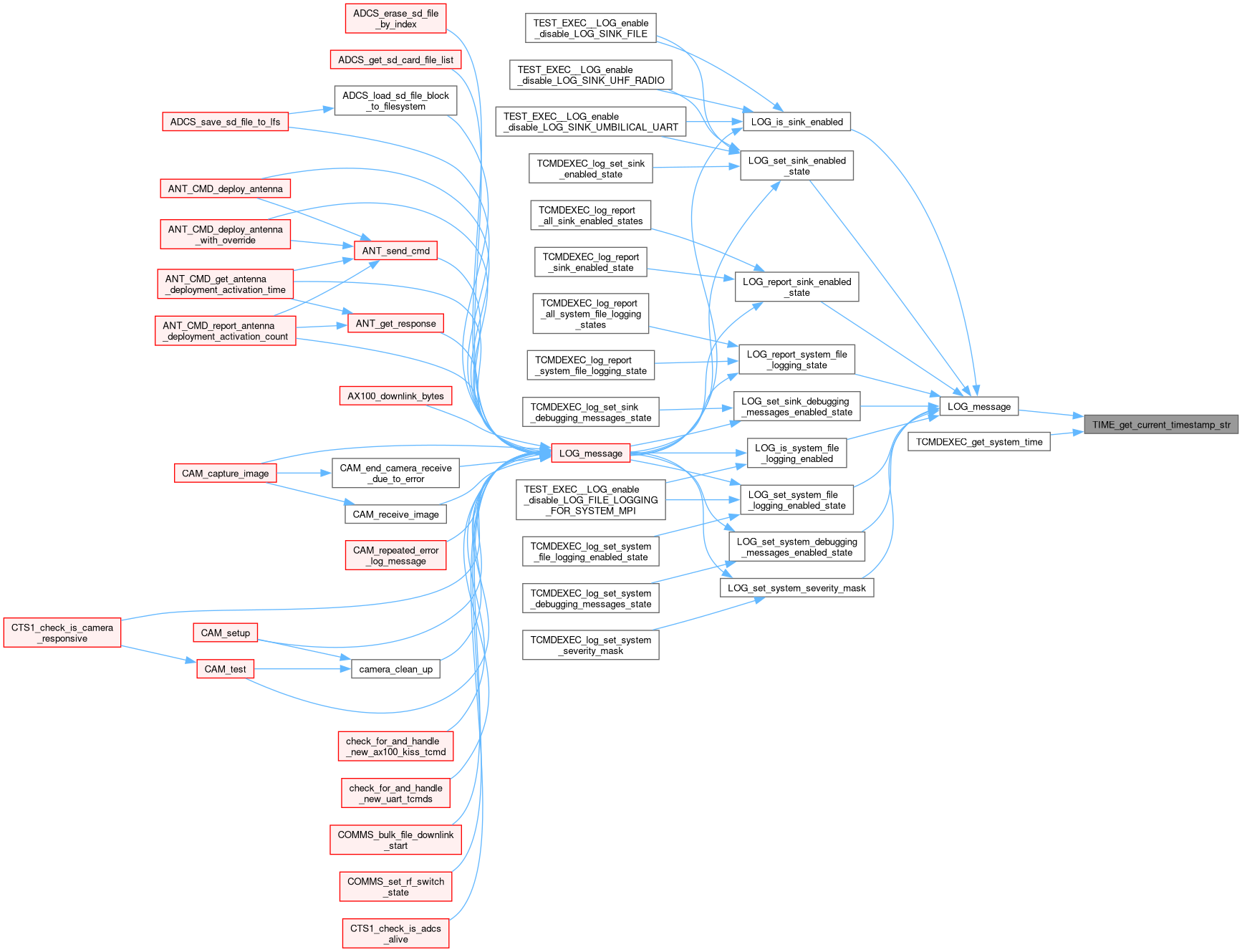
◆ TIME_get_current_unix_epoch_time_ms()
| uint64_t TIME_get_current_unix_epoch_time_ms | ( | ) |
Returns the current unix timestamp, in milliseconds.
Here is the call graph for this function:

Here is the caller graph for this function:
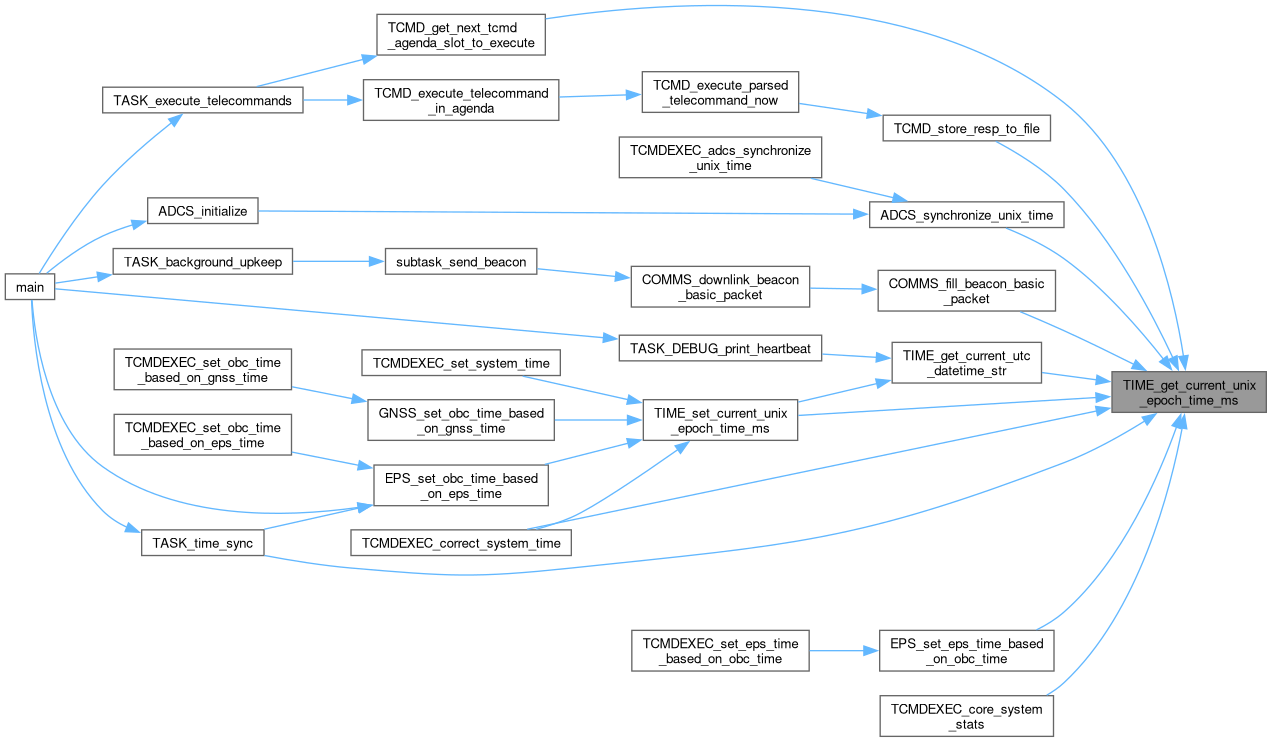
◆ TIME_get_current_utc_datetime_str()
| void TIME_get_current_utc_datetime_str | ( | char * | dest_str, |
| size_t | dest_str_size ) |
Here is the call graph for this function:

Here is the caller graph for this function:

◆ TIME_set_current_unix_epoch_time_ms()
| void TIME_set_current_unix_epoch_time_ms | ( | uint64_t | current_unix_epoch_time_ms, |
| TIME_sync_source_enum_t | source ) |
Use this function in a telecommand, or upon receiving a time update from the GNSS.
Here is the call graph for this function:
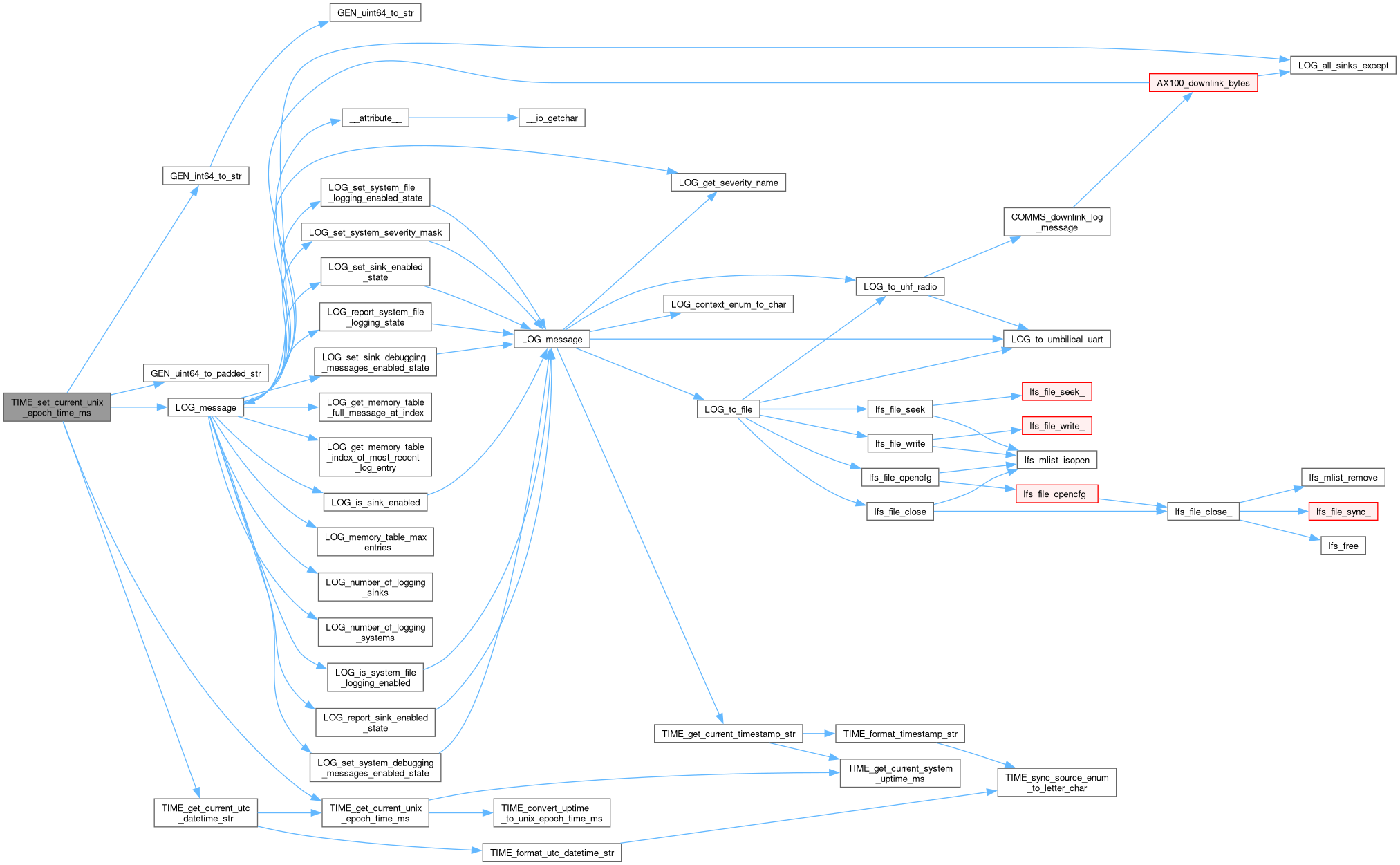
Here is the caller graph for this function:
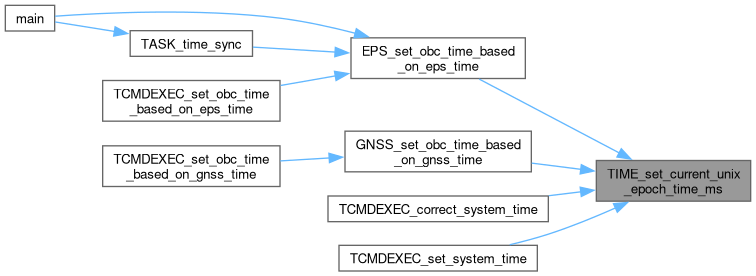
◆ TIME_sync_source_enum_to_letter_char()
| char TIME_sync_source_enum_to_letter_char | ( | TIME_sync_source_enum_t | source | ) |
Here is the caller graph for this function:
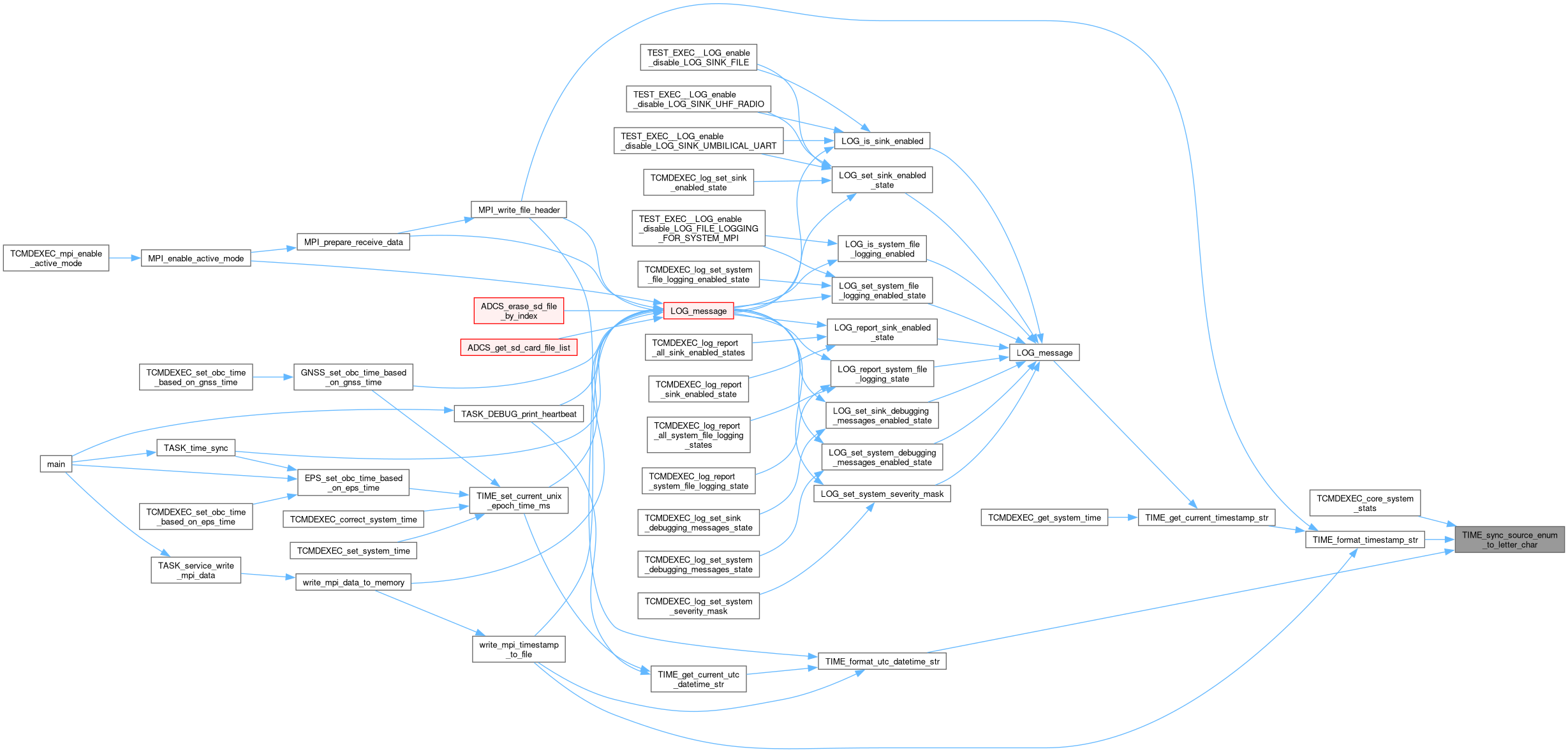
Variable Documentation
◆ TIME_last_synchronization_source
|
extern |
◆ TIME_system_uptime_at_last_time_resync_ms
|
extern |
◆ TIME_unix_epoch_time_at_last_time_resync_ms
|
extern |
Generated by